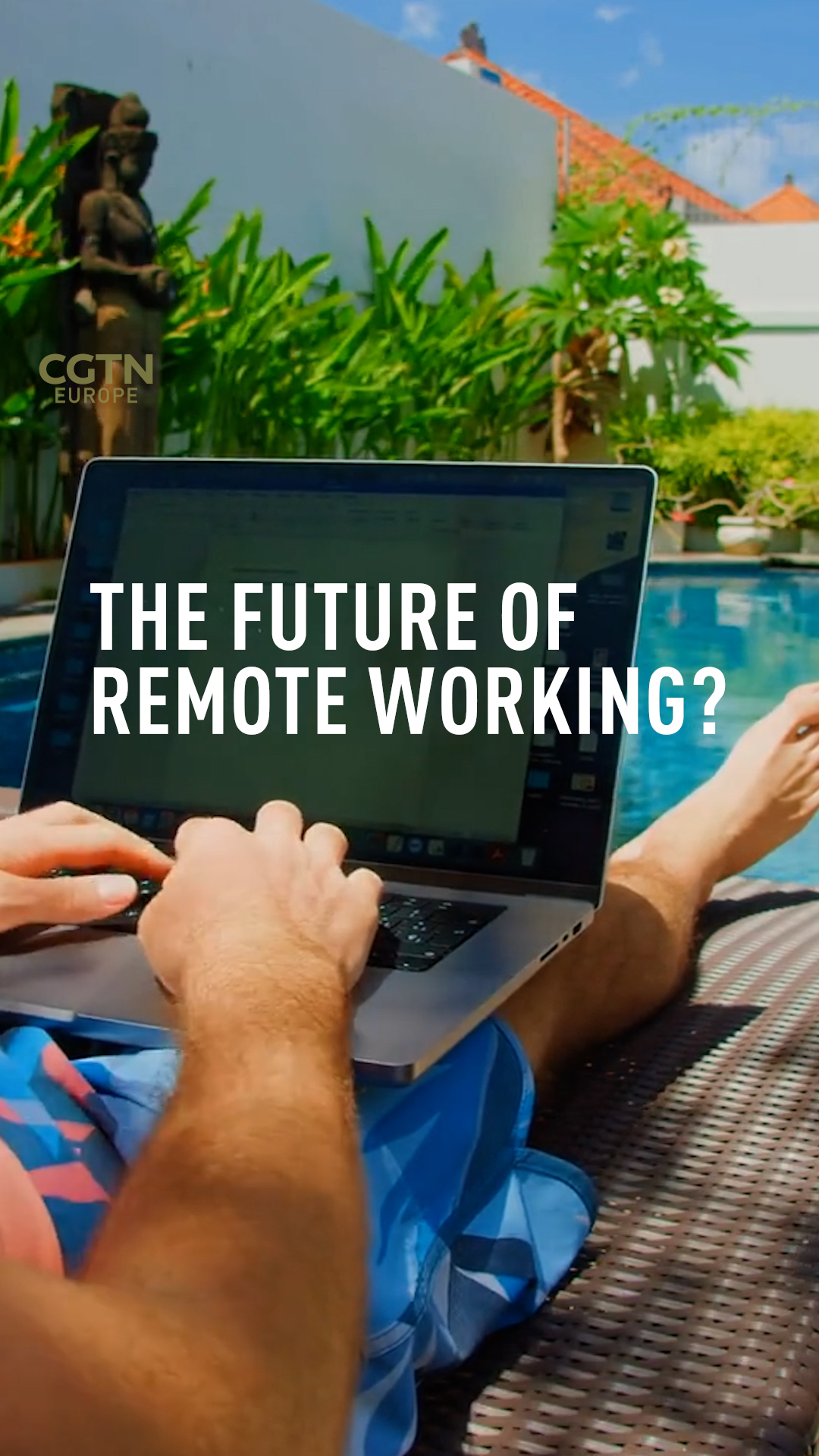
Many business leaders say there are huge benefits to remote working, but that its integration into their business models still needs fine tuning. /Ivan-Balvan/Getty Creative/CFP
Many business leaders say there are huge benefits to remote working, but that its integration into their business models still needs fine tuning. /Ivan-Balvan/Getty Creative/CFP
COVID-19 has definitely ushered in a remote working revolution, with nearly 42 million employees - around one in five of Europe's working population - logging on from home during 2021. That's nearly double the figure prior to the pandemic.
As the teleworking trend persisted into 2022 and now the new year, companies the world over have had to adapt to what, for many employees has been a positive shift in working culture. But the transition has not been without its challenges for employers.
READ MORE
Meet Italy's first antimafia witness turned MP
France's controversial pension reform
The Secret Betrayal: China's WWII sailors
So in 2023, what do business leaders really think about the seismic shake up brought on by remote working, and how are they adapting their business model?
"Offering home office options, going through Zoom, etc., is efficient. It's very good, it offers flexibility," says Benjamin Hung, the CEO for Asia of Standard Chartered, one of the world's leading international banking groups.
"But I also believe in human face-to-face interaction," he tells CGTN Europe. And during the pandemic, that was the stance of an overwhelming majority of top financiers.
02:08

Despite flexibility being a buzzword in finance, Goldman Sachs CEO David Solomon was among many bankers at the time to be openly hostile to the possibility of long-term hybrid working.
"I do think for a business like ours, which is an innovative, collaborative apprenticeship culture, this is not ideal for us. And it's not a new normal. It's an aberration that we're going to correct as soon as possible," he said back in February 2021.
In contrast to many of its peers, Standard Chartered was among the few multinational finance groups to quickly embrace the teleworking revolution, a move that was informed by listening to their staff.
With over 80 percent of its workforce working remotely at the height of the pandemic, the bank carried out an in-depth survey on their employees' experience and found that while only a small proportion of employees preferred full-time teleworking, 74 percent of global employees wanted to work from home a minimum of 50 percent of their time.
The best thing is having a plan.
- Benjamin Hung, CEO for Standard Chartered Asia
Nearly two years on, Hung says Standard Chartered has fully integrated this preference into their business model - but stresses its incorporation has had to remain dynamic.
"The best thing is having a plan," he says. "Now different markets, different places have slightly different preferences and culture, and we adapt to it. The wrong thing to do is to apply a one-size-fits-all approach."
Offering teleworking options has also been an important way to attract new talent, says Hung.
But as vice president and chief finance officer of the BRICS' New Development Bank, Leslie Maasdorp, points out, training new recruits over a computer screen has its issues.
"To onboard people remotely is very, very difficult," he says. "For people who have been with the firm for many, many years, they understand the culture, the connectivity... it can work. But for younger employees who need to go through periods of training, it is more difficult."
The key for Maasdorp is balancing the two systems: "I don't think it is either remote work or non-remote work. It's more about blending a sort of hybrid model that will be part of the future."
Today, around 16 percent of companies are fully remote, according to an Owl labs study, but many companies like Europe's largest industrial manufacturing company Siemens have decided to split the difference.
"We target a 50 percent in-office policy, 50 percent remote, so we give that freedom to the employees, which is well accepted," says Matthias Rebellius, the CEO of Smart Infrastructure at Siemens.
It's very positive for employee morale.
- Jane Sun, CEO Trip.com
Over at Trip.com, one of the first companies in China to adopt a remote work policy, employees have the option to work from home two days a week.
"We are pioneers in China," says Jane Sun, the CEO of the online travel agency. "Monday, Tuesday, and Thursday, everyone comes back to the office to work; Tuesday and Friday, the employees will have an option to work at home.”"
She says that the policy was informed by A/B testing before it was enforced: "The results showed that productivity was stable, but job satisfaction increased quite a lot and attrition reduced significantly. So it's very positive for employee morale."
In fact, a global survey by the Tracking Happiness app showed that the ability to work remotely increased employee happiness by as much as 20 percent, particularly for millennials, while returning to office-based work after the pandemic was consistent with reduced employee happiness.
However, Rebellius, says Siemens, like many other companies, is still having to learn how to handle the "increasing complexity" of the shift.
"You do not know who is where and how teams are going to manage this," he says. "There's still some work to do, but there's full commitment from our side.”
Video editor: Tom Triebel